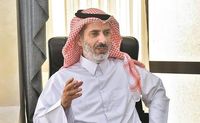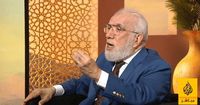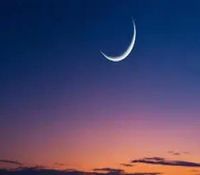As Ramadan progresses, Muslims around the world eagerly anticipate Laylat al-Qadr, a night that holds great significance in the Islamic calendar. This holy night is described in the Quran as being "better than a thousand months," making it a time of heightened prayer, introspection, and devotion among believers.
During the last ten nights of Ramadan, specifically the odd-numbered nights, Muslims engage in fervent worship, hoping to coincide their prayers with Laylat al-Qadr. This year, many scholars suggest that the holy night might fall on the 27th of Ramadan, a belief rooted in numerous teachings from the Prophet Muhammad, who encouraged the faithful to seek this blessed occasion.
The anticipation surrounding Laylat al-Qadr has been acknowledged by Sheikh Salman bin Jabr Al Thani, the head of the Qatar Center for Space Sciences and Astronomy. He emphasized that astronomically pinpointing the exact date of Laylat al-Qadr is fundamentally impossible, stating, "Any astronomy claiming knowledge of Laylat al-Qadr is merely speculation." He noted that signs of this revered night are subjective and not predictable through scientific means.
In his remarks, Sheikh Salman highlighted the importance of experiencing the spiritual essence of Laylat al-Qadr. He elaborated that discerning the night requires a deep connection to the spiritual atmosphere, often described by its calmness and tranquility. Various signs commonly associated with Laylat al-Qadr include a serene night sky and the absence of overwhelming heat or cold, which many believe contributes to a feeling of peacefulness during prayer.
This year, Muslims are particularly focused on observing these signs. For example, Dr. Omar Abdel Kafi, an Islamic scholar, reiterated that while many believe Laylat al-Qadr occurs on the odd nights, individuals are encouraged to approach every night of Ramadan with intention and sincerity. He stated, "If a person prays on a night other than the last ten nights and earnestly calls upon God, it is a moment not to be lost." His approaches emphasize a broader understanding of divine mercy and the opportunity for spiritual elevation outside of a fixed date.
The 29th of Ramadan has also been highlighted for moon sighting as Muslims prepare for Eid al-Fitr. The Qatar Center for Space Sciences noted that the moon would be visible early on the 29th day, allowing for the formation of community prayers to usher in the holiday.
Moreover, the Egyptian Dar al-Iftaa has articulated that Laylat al-Qadr could fall on any of the odd nights, often acknowledging it on the 21st, 23rd, 25th, 27th, or 29th of Ramadan. Despite many believing that it most often falls on the 27th night, the exact timing remains elusive to encourage an earnest pursuit of worship during all ten of these nights.
For many Muslims, Laylat al-Qadr represents an opportunity for repentance. It embodies an invitation to seek out forgiveness and renewal, often marked by specific prayers and acts of kindness. "The Soul of Ramadan is manifested during Laylat al-Qadr... it is essential to increase acts of worship, read Quran, and give charity during this holy night," reiterated Sheikh Salman during a recent discussion.
As believers prepare for this significant time, a range of recommended prayers and reflections emphasizes one's intention to come closer to the divine. Among these, a frequently recited prayer from the Prophet Muhammad is: "O Allah, you are the Most Forgiving, You love forgiveness, so forgive me." This sentiment encapsulates the heart of the season, urging believers to utilize this blessed occasion for spiritual growth.
Each year, the signs marking Laylat al-Qadr fuel profound anticipation as Muslims collectively engage in prayer, supplication, and reflection. The tranquility that characterizes the night allows practitioners to deepen their relationship with God and realign their spiritual focus as they commemorate this special event within the month of Ramadan.
As communities prepare to observe these sacred nights, the overarching theme remains one of spiritual awakening and communal connection during a time when mercy is sought. Laylat al-Qadr not only elevates individual spirituality but also reaffirms the bonds that unite the Muslim community around the globe.







